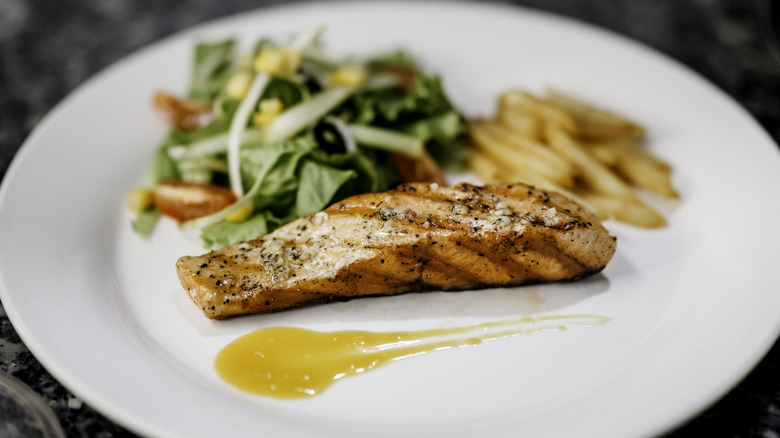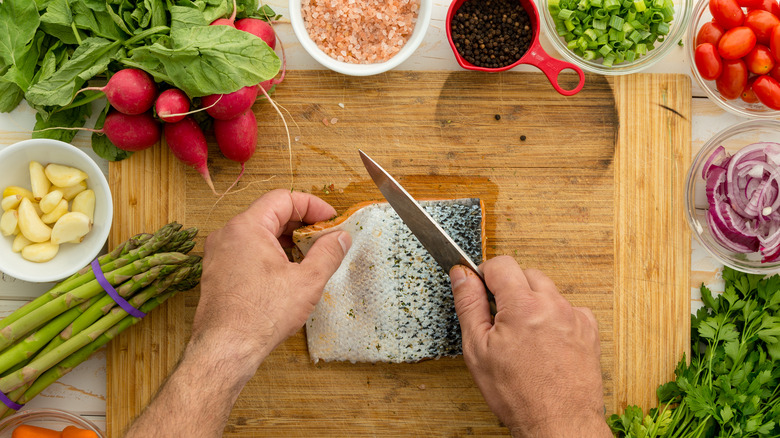No Wild Salmon, No Problem: Why You Should Grill Farmed Salmon Instead
When it comes to the type of salmon, most people look at wild-caught salmon as the more tasteful and discerning pick. That's mostly because it is the more nutritious type compared to farmed salmon. It also has a richer flavor profile, since it swims in open waters and has access to a varied diet. It is also a rare find, and we tend to value what is harder to come by (hence the high price tag). Yet when it comes to grilling salmon, farmed is not only more reasonable and easily available than wild-caught salmon, but might actually be a better choice in terms of flavor and texture.
Farmed salmon is better suited to high heat as it has a higher fat content. Those stripe-y striations you see on a farmed salmon are fat. This extra fat gives it a softer, more luscious texture and makes it ideal for searing or grilling. "The fattiest farm-raised salmon has about four times more fat than the leanest wild species. When it comes time to cook them, that has a huge impact." Dan Souza, chef and chief content officer for America's Test Kitchen, told The Splendid Table.
The lack of fat in wild-caught salmon, on the other hand, makes it dry out faster and more prone to overcooking. Farmed salmon is also milder in taste and appeals to a wider number of palates. If you absolutely have to grill the wild-caught variety, you should look for king salmon, also called Chinook. It has a more luxurious fat content compared to other wild species, since it lives in colder waters and needs more stored energy, but be prepared for a deeper hole in your pocket.
The right way to grill farmed salmon
Due to the significant differences in composition, flavor, and texture compared to wild-caught salmon, farmed salmon requires different grilling or cooking methods than wild-caught. In fact, many people think they can use the same method to grill farmed salmon, but that's probably the biggest mistake one can make when cooking farmed versus wild salmon. Another thing to keep in mind is that salmon farms differ widely in scale, setting, and farming methods; no two operations run quite the same. So the quality and taste might vary. Either way, it is best to grill farmed salmon to medium rare for a juicy, flaky result.
You can start with a hot, well-oiled, and squeaky-clean grill, and keep brushing the fillets with oil. This will preserve their supple texture and ensure they hold their shape beautifully. You can also cook your farmed salmon over fresh slices of lemon on the grill to keep it from sticking to the grates. It's one of the lesser-known tricks for cooking salmon you wish you'd known sooner.
For shatter-crisp skin, lay the fillet skin-side down first until the flesh turns opaque. Then, give it a quick flip to finish. Whatever you do, don't use tongs on either farmed or wild salmon as they're too delicate. A temperature of 125 degrees Fahrenheit is ideal for farmed salmon, so use an instant-read thermometer to monitor doneness. Though there's less risk of overcooking, run checks every two to three minutes to end up with perfectly grilled salmon.

